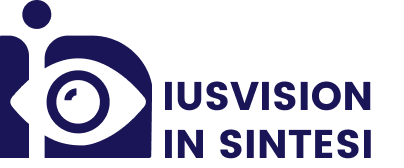Is AI is to change the legal profession?
A few days ago, I attended an online event organised by the Law Society of Ireland with the participation of representatives of the Law Society of England and Wales on the use of generative AI in the legal sector. Approximately 640 lawyers and people in the legal profession attended, and as the President of the Committee pointed out, this showed probably that there is a great interest and maybe also great concern from professionals on the topic of AI in the legal profession.
Firstly, it was not a waste of time explaining to the audience the obvious – which is not obvious to everyone, I dare say. ChatGPT (where GPT stands for Generative Pretrained Transformer) is one example of the group technologies called LLMs, Large Language Models. It’s been trained on the internet and doesn’t know what the words mean. The model puts together sequences of words that statistically make sense together. It works by remixing words into new sentences, so it only understands the statistical relationship between them. This means that the word assembling exercise provides an output where there is no understanding of any of it, no common sense either.
AI is important and needs our attention in this moment because three elements came together for the first time in history in the last couple of years. 1. Data – we have a huge amount of data do process 2. Compute – we have the capacity to process a huge amount of data (for instance, through data centers) 3. Techniques – we have these GPT techniques, these transformers that machine learning uses to create these effective models.
Internet is not the best source or the place where high quality data are stored and Chat GPT is trained on the internet, so it is not the future. But these technologies, these models, are the future and they will need to be trained differently if we want their outcome to be useful. The future is specialisation, so we will have specific models which will be trained on specific sets of data for a specific purpose.
As to the use of generative AI, a real time survey from the Law Society of England and Wales showed that these tools are used for legal and non-legal service delivery, the latter being for instance initial drafting of letters or emails, summaries, data analysis, transcription of meetings and capturing what the actions are, all in order to improve efficiency across legal service delivery.
Some speakers at the event also raised the questions on what areas of law are more suitable to the use of AI and is legal advice included in this exercise. What is certain is that UK law firms are testing what AI tools are better for specific purposes and functions than others and some firms have carried out and completed analysis, identifying what the opportunities actually are.
Eventually, the market of AI tools will go directly to consumers. You might have CoPilot assistants for your legal matters if you don’t want or can’t afford to have a lawyer, products which will advertise like this “AI lawyer: your personal AI legal assistant”.
AI tools for lawyers
Someone said that AI will not replace lawyers, but it will replace lawyers who don’t use generative AI. So while I’m doing one bit of work, my AI tool can be doing research for me, it can be writing the first draft of a script, it can be contesting my arguments that I’ve put forward in an affidavit, so I’m almost multiplying my ability to do work, so AI is going to make everyone far more productive and is going to have a transformative effect on the legal profession. Working on the prompts is one important way to look at and learn to use AI tools. The prompting is only as broad as your imagination, so you got different responses depending on the wording of your prompt.
In the legal sector, Spellbook is a model which has been trained specifically on legal documents and it has become an expert contract lawyer. So Spellbook is advertised as being able to give on demand a specific contract tailored to the client’s situation and needs. Why contracts? Because you have a lot of data out there and these tools have been fed all this material for their training.
Allen&Overy in London has used this service called Harvey and they’re looking at it to replace legal resource, by using it for a triage service for the incoming cases that would have been given to trainees for assessment. This tool might allow them to actually save money and time even though it opens up to a lot of questions. Taking out some of the lower jobs is not necessarily a good thing.
Some speakers from big law firms explained how AI is used by those firms at the moment. One important area is e-discovery – which is the gathering of evidence before trial in common law countries civil proceedings – where AI is used to parse significant amounts of documentation, to search huge amounts of information and to use algorithmic processes like technology assisted review. This use turned out to be successful for everyone – law firms, clients, the judiciary.
Regarding those generative AI tools which promise to search, extract, summarise data, carry out contract reviews in the context of transactions or due diligence, speakers confirm that artificial intelligence is still a rudimentary instrument at the moment. You have a tool that can parse contracts for example and extract relevant clauses, however the algorithm still requires a lot of training.
Contract review, contract management systems are functions that are needed in AI tools especially from in house lawyers, being those tasks an important part of their day-to-day job. If you use the AI tool to extract certain provisions, then the AI tool works pretty well and provides efficiency in terms of a work that would be time-consuming. However, AI tools wouldn’t give much in terms of legal insight, so their efficacy is still quite limited.
Ethical and regulatory issues in the use of AI tools
What about the use of AI in a law firm from an ethical and regulatory perspective? The Solicitors regulation Authority in England and Wales published a risk outlook report specifically on adoption of AI tools within law firms and the Generative AI Essential Guide contains guidance on the use of these tools within law firms.
From a data governance framework point of view and AI policies that you need to have in place if you want to implement AI tools – if you feed data into an AI tool, where does that data go? Who has access to the data? In the EU context there may be disclosure requirements with regards to the AI Act, however it is important to ask question to the AI tool vendor about this and how the tools are supposed to adhere the rules related to data management and protection.
The concern would be how to verify compliance with data protection? How are you able to know that the tools are being compliant – the Law Society intend to issue a code of practice for AI use by solicitors? It is in the process of being drafted as the Law Society is very eager to provide this guidance to its members. You have a responsibility as a lawyer that your core values are upheld and you have a responsibility to make sure that you meet your ethical duties when you are using this technology, so you can’t abdicate that responsibility to technology even if your work is enhanced or generated by AI, you still have the obligation to make sure that it complies with all your duties as a solicitor when you process that work for your client.






